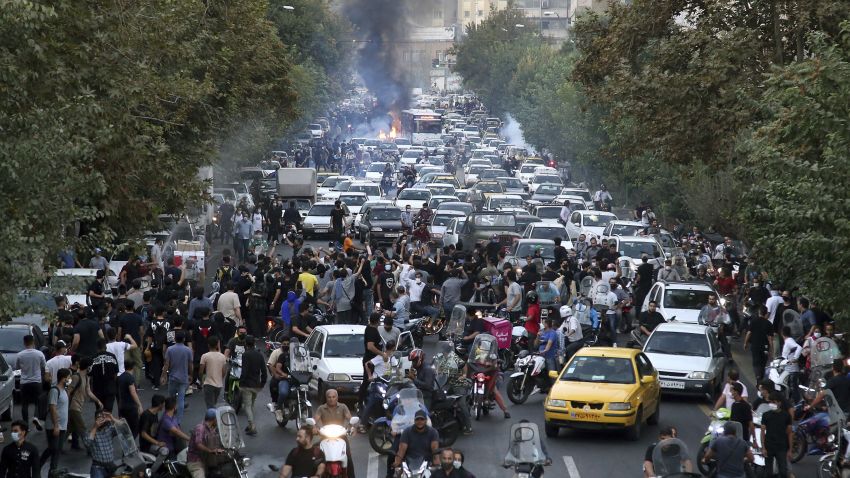Women in Iran are taking to the streets to protest the Islamic Republic’s mandatory headscarf law, which requires women to cover their hair while in public. The protests in Tehran as well as many other cities began in reaction to the death of 22-year-old Mahsa Amini while in the custody of the morality police, following her arrest on allegations that she wasn’t wearing her headscarf appropriately. Her family say the injuries she sustained at the hands of the religious police were the cause of her death, but the Iranian authorities claim that Amini died of a heart attack.
The protests in Iran do not necessarily signal the beginning of the end for the theocratic regime that has held power in Tehran since 1979. But they are nonetheless important because they demonstrate the limits of the regime’s stranglehold on Iranian society and are a grim reminder of the brutality it can deploy against ordinary citizens.
Iranian authorities are responding to the current protests in the same way they have reacted to previous outbreaks of popular discontent, whether those motivated by economic grievances, such as the periodic waves of protests in cities across the country since 2017, or those motivated by political grievances, like the Green Movement in 2009, which contested former President Mahmoud Ahmadinejad’s reelection to a second term. In all these scenarios, the authorities have cracked down violently on the protesters, causing many injuries and deaths. They have also restricted access to traditional and social media in order to limit the ability of protesters to mobilize and communicate with each other, but also to enable the regime to control the narrative inside and outside Iran, including by organizing counterprotests in support of the regime. Tehran’s crackdown has drawn criticism from Western countries, to which it has responded by accusing those countries of either meddling in Iran’s domestic affairs or maintaining double standards regarding human rights—one for Iran and another for themselves.

